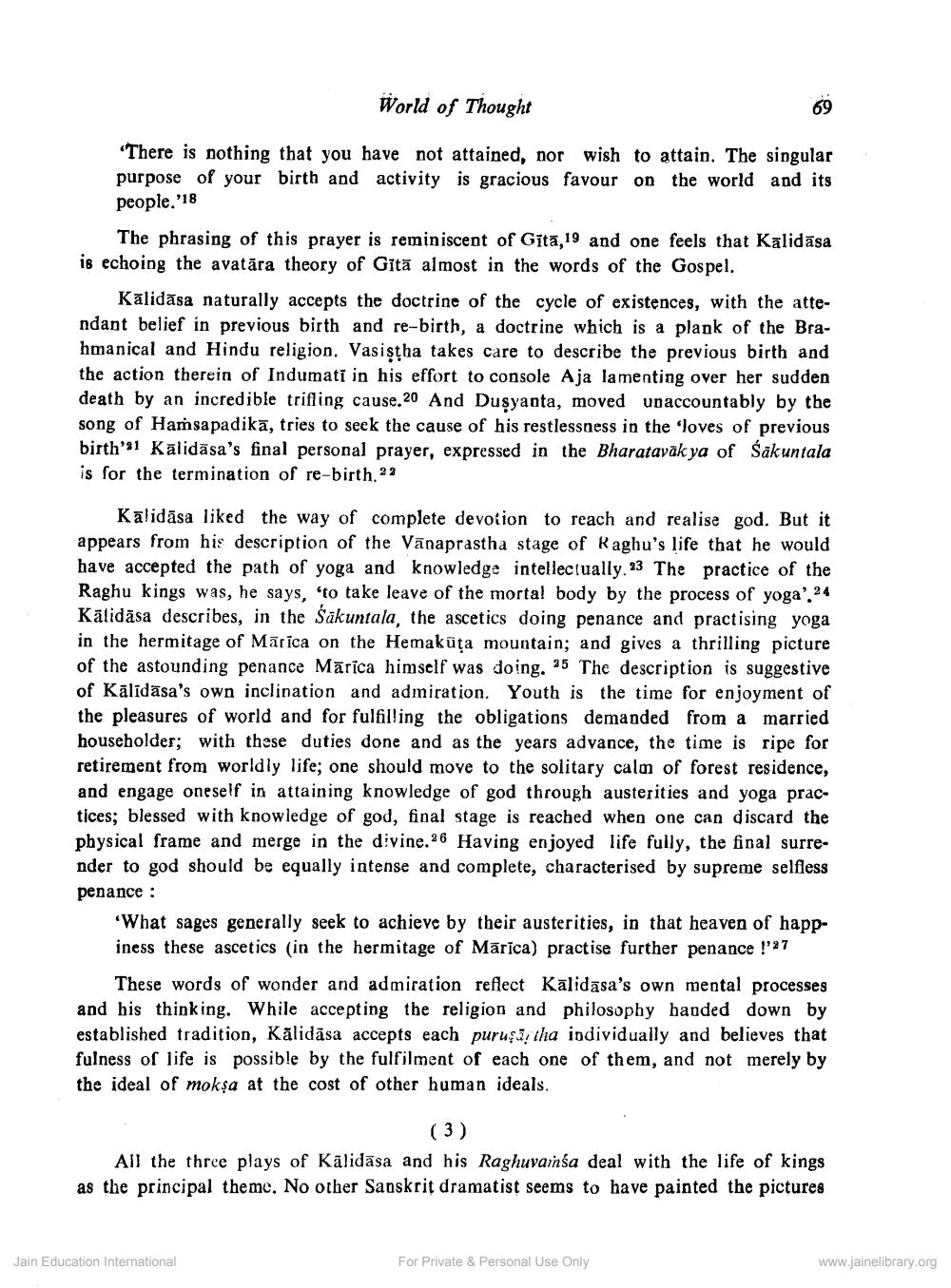________________
World of Thought
“There is nothing that you have not attained, nor wish to attain. The singular purpose of your birth and activity is gracious favour on the world and its
people, '18
The phrasing of this prayer is reminiscent of Gītā,19 and one feels that Kalidāsa is echoing the avatāra theory of Gītā almost in the words of the Gospel.
Kalidasa naturally accepts the doctrine of the cycle of existences, with the attendant belief in previous birth and re-birth, a doctrine which is a plank of the Brahmanical and Hindu religion. Vasiştha takes care to describe the previous birth and the action therein of Indumati in his effort to console Aja lamenting over her sudden death by an incredible trifling cause.20 And Duşyanta, moved unaccountably by the song of Hamsapadikā, tries to seek the cause of his restlessness in the 'loves of previous birth'21 Kālidāsa's final personal prayer, expressed in the Bharatavāk ya of Śakuntala is for the termination of re-birth.23
Kalidāsa liked the way of complete devotion to reach and realise god. But it appears from his description of the Vānaprastha stage of Raghu's life that he would have accepted the path of yoga and knowledge intellectually. 23 The practice of the Raghu kings was, he says, "to take leave of the mortal body by the process of yoga'.24 Kalidasa describes, in the Sakuntala, the ascetics doing penance and practising yoga in the hermitage of Mārīca on the Hemakūța mountain; and gives a thrilling picture of the astounding penance Mārica himself was doing. 35 The description is suggestive of Kālīdāsa's own inclination and admiration. Youth is the time for enjoyment of the pleasures of world and for fulfilling the obligations demanded from a married householder; with these duties done and as the years advance, the time is ripe for retirement from worldly life; one should move to the solitary calm of forest residence, and engage oneself in attaining knowledge of god through austerities and yoga practices; blessed with knowledge of god, final stage is reached when one can discard the physical frame and merge in the divine. 26 Having enjoyed life fully, the final surrender to god should be equally intense and complete, characterised by supreme selfless penance :
'What sages generally seek to achieve by their austerities, in that heaven of happiness these ascetics in the hermitage of Mārica) practise further penance !'27
These words of wonder and admiration reflect Kalidasa's own mental processes and his thinking. While accepting the religion and philosophy handed down by established tradition, Kālidāsa accepts each puruşā, tha individually and believes that fulness of life is possible by the fulfilment of each one of them, and not merely by the ideal of mokşa at the cost of other human ideals.
(3) All the three plays of Kālidāsa and his Raghuvansa deal with the life of kings as the principal theme. No other Sanskrit dramatist seems to have painted the pictures
Jain Education International
For Private & Personal Use Only
www.jainelibrary.org




